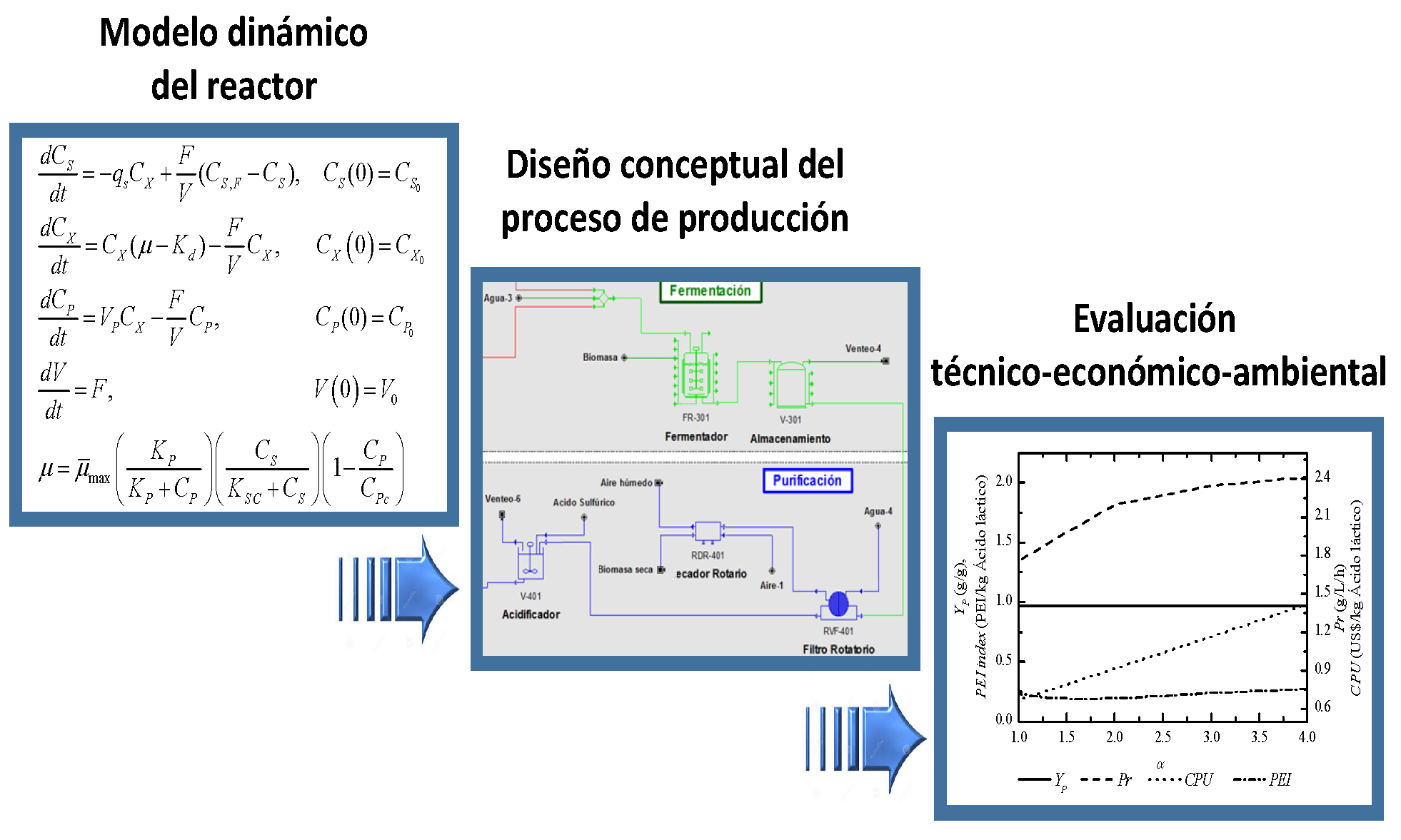 |
|
Biomass is one of the most promising raw materials used in a biorefinery, as it produces a neutral balance of CO2. While bioeconomics is a new approach that emphasizes the efficient and sustainable use of biomass production processes to obtain chemicals, materials and energy. Under this approach, this paper presents the design of a biorefinery of sugarcane molasses to produce lactic acid and a food supplement. The analysis of the design is presented in two parts; first, a dynamic analysis of the fermentation reactor is done for two modes of operation (batch and fed-batch), using an enrichment factor associated to the nutrients concentration, and achieving a maximum productivity of lactic acid of 2.4 g/L/h and a yield of 0.97 kg product/kg substrate. In the second part, an industrial conceptual design of the biorefinery is analyzed, evaluating diverse technical, economic and environmental criteria to determine the sustainability of the production process. With the best process design (in mode fed-batch), a unit production cost of 0.66 US$/kg is obtained, with a return of investment of 62.2% in a recovery period of 1.61 years, and with a low environmental impact index of 0.18 PEI/kg.
Keywords: biorefinery, lactic acid production, dynamic analysis, techno-economic-environmental assessment, sustainability.
|
|
 |